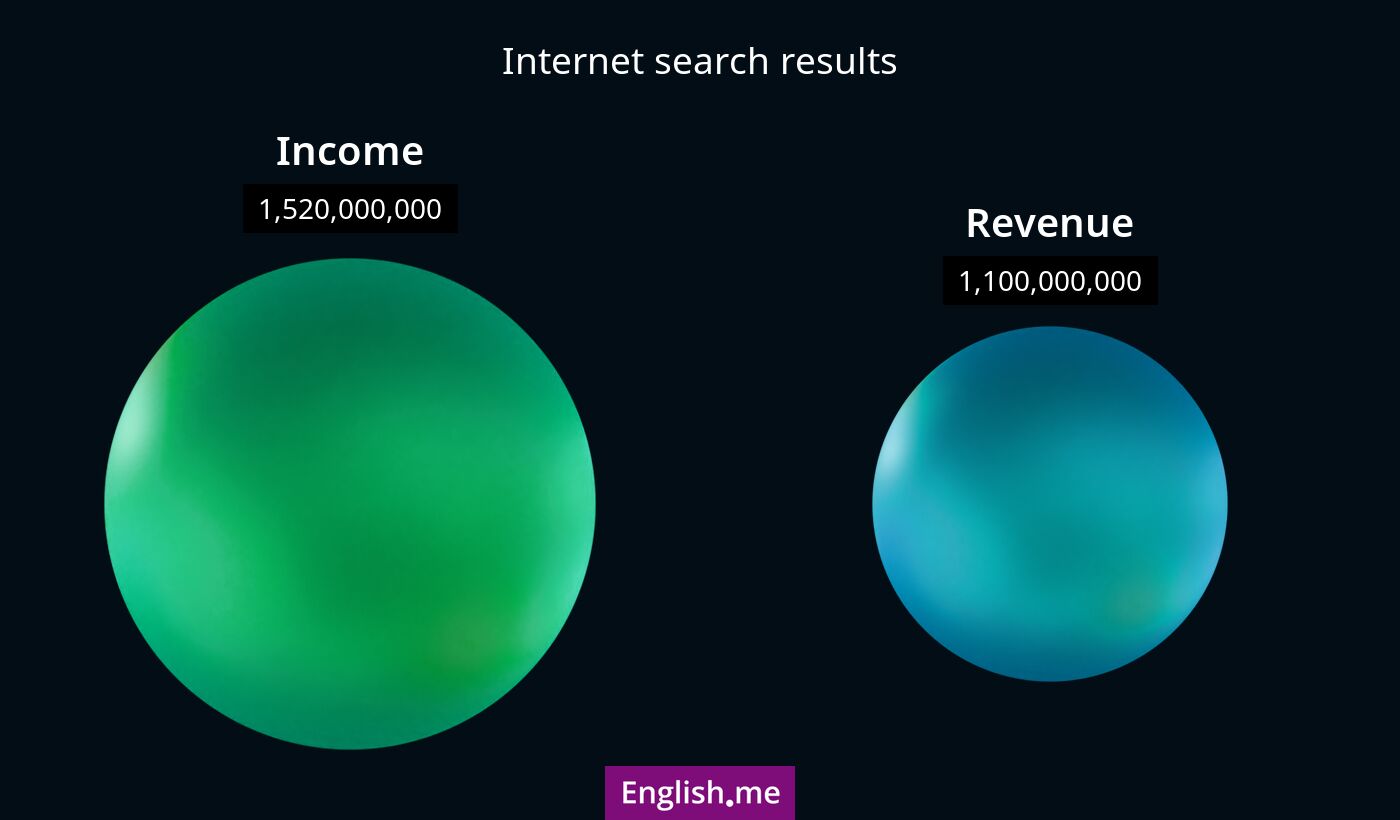"Income" vs. "revenue": close but not the same
Reviewed and edited by  Anwar Kareem 04/12/2024, 12:24
Anwar Kareem 04/12/2024, 12:24
English.me team member

 What is similar?
What is similar?
Both "income" and "revenue" refer to monetary amounts received and are used in financial contexts to describe earnings over a period of time.
 What is different?
What is different?
"Revenue" refers to the total amount of money generated by a company from its business activities before any expenses are deducted. It represents the gross earnings. "Income", on the other hand, often refers to the net amount remaining after all expenses, taxes, and costs have been subtracted from the revenue. For individuals, "income" typically means the total earnings from all sources.
 Which one is more common?
Which one is more common?

 Examples of usage
Examples of usage
Income- Her annual income has increased steadily over the years.
- They live comfortably on a single income.
- After deducting expenses, his net income was substantial.
- The company's revenue grew by 15% this quarter.
- Ticket sales generate a significant portion of their revenue.
- They are exploring new ways to increase revenue.

 English
English español
español française
française italiano
italiano deutsche
deutsche 日本語
日本語 polski
polski česky
česky svenska
svenska Türkçe
Türkçe Nederlands
Nederlands